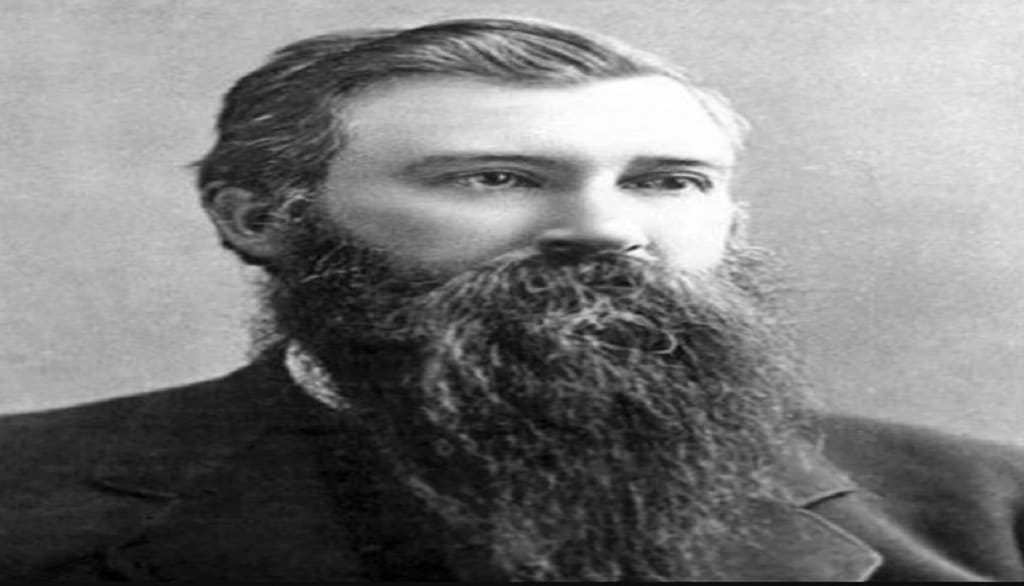The unusual life and death of former Kokomo Mayor Henry Cole
Was the mayor set up to be murdered?

Kokomo, Indiana is known for its vibrant history. Unfortunately, Kokomo reminds me of Ryan White's story. A blood transfusion led to him contracting HIV. The HIV virus was not well understood in those days. In the public's eyes, all they knew was that it was a death sentence. He became a pariah. As a result, he was unable to attend school and parents were concerned about their children associating with him. In 1987, his family relocated from Kokomo to Cicero, Indiana. On April 8, 1990, he was eighteen when he passed away.
If you look at Kokomo's history, it is impossible to overlook Mayor Henry Cole. In the late 1800s, Mayor Cole was considered a larger-than-life celebrity. In one instance, he was acquitted of murdering a man and then walking away scot-free.
Henry Cole was born in Ripley County, Indiana, in 1838. Before the Civil War, little is known about him. He served in the Army's medical corps during the war as a surgeon. In 1860, Cole moved to Kokomo and opened a medical practice.
Tall and handsome with a well-trimmed beard, he was described as a lady's man. In his capacity as a doctor, he provided care for patients and even treated poor patients who had little or no money.
He was no stranger to the people of Kokomo by the time he became mayor in 1880.
It was widely known that he was eccentric and stubborn as well as having a questionable past. He was said to have been involved in criminal activity. Despite the rumors, no one could prove it.
Cole's personality would annoy many people. As a result, he made enemies and did not seem to care what others thought of him. In response to Kokomo's high crime rate, he promised to clean up the city's crime problem. Cole’s political opponents thought Cole’s promise to clean up crime was ludicrous because of his alleged connections to the notorious Mollihan gang. They were a gang of criminals who terrorized Howard and Tipton Counties.
An article in the Kokomo Daily Tribune in 1950 associated Cole with murder, arson, abortion, counterfeiting, and larceny. Despite rumors of his criminal activity, his supporters refused to believe them. Cole's name would make headlines in October 1866 for the wrong reasons.
Cole was married to an attractive woman. However, there were marital issues that led to infidelity. His wife began an affair with Chambers Allen, a businessman. Cole was enraged after discovering the affair. He sent Allen a warning letter. He told Allen that if their paths crossed, he would kill him. Despite the threat, Allen didn't take it seriously.
He should have.
In spite of this, Allen continued his affair with Cole's wife. The affair ended when Cole encountered Allen at the Buckeye Street post office. Cole pulled out his revolver and shot Allen to death. Law enforcement arrested and charged Cole with killing Allen. U.S. Representative Daniel Voorhees represented Cole. His plan was to have Cole plead insanity. The strategy worked as the jury found Cole not guilty.
Cole must have seemed untouchable. His luck ended on September 19, 1881, when he was shot and killed by a sheriff's posse. Sheriff J.W. DeHaven allegedly received a tip about a robbery that was supposed to occur at the Spring Mill on September 19, 1881. He did not reveal who gave him the tip.
A sheriff's posse was formed to arrive at the mill and wait for the suspects. The robbery involved Cole, supposedly. Around 9 p.m., the posse arrived at the mill.
Through the darkness, the posse saw two men at 11 p.m. One intruder allegedly picked up four sacks of flour and carried them to a window. The accomplice, who turned out to be Mayor Cole, dragged two sacks to an outhouse, then returned for the remaining two sacks with a bag in each hand. While Cole was hauling away the second pair of bags, a deputy called out to him to stop. The deputy shot and killed Cole after he attempted to escape.
While the Kokomo Dispatch called the posse heroes, Cole's supporters weren't so sure. It was hard to believe the mayor would steal flour bags. For what purpose? Cole’s supporters demanded the four men in the posse be investigated for murder. They believed the posse had likely lured Cole out to treat a patient. As soon as he arrived, he was murdered. After his death, the body was moved to the mill to give the impression that he was attempting to commit a burglary. The members of the posse were considered Cole's enemies, so their suspicions were legitimate. There may have been a motive for each man to kill Cole.
Due to a lack of evidence, their claims that Cole was murdered were dismissed.
Today, historians continue to discuss the case. Could Mayor Henry Cole have been set up and murdered? Was he killed while stealing flour? Although the story was a media sensation, it was overshadowed nationally by the murder of President James Garfield on September 19, 1881. While we know Garfield was assassinated, whether Mayor Henry Cole was assassinated or not is still a matter of debate.
Marc is a longtime resident of Clermont County and an avid reader. Contact him through his website at www.themarcabe.com or through Facebook at https://www.facebook.com/Catchmykiller. Marc also has a podcast called Catch my Killer, where he interviews family members seeking justice for their murdered loved ones. You can listen at www.catchmykiller.com.
About the Creator
Marc Hoover
Marc Hoover is a Hooper award winning columnist for the Clermont Sun newspaper in Ohio. Contact him at [email protected]. Marc also has a podcast called Catch my Killer.






Comments
There are no comments for this story
Be the first to respond and start the conversation.